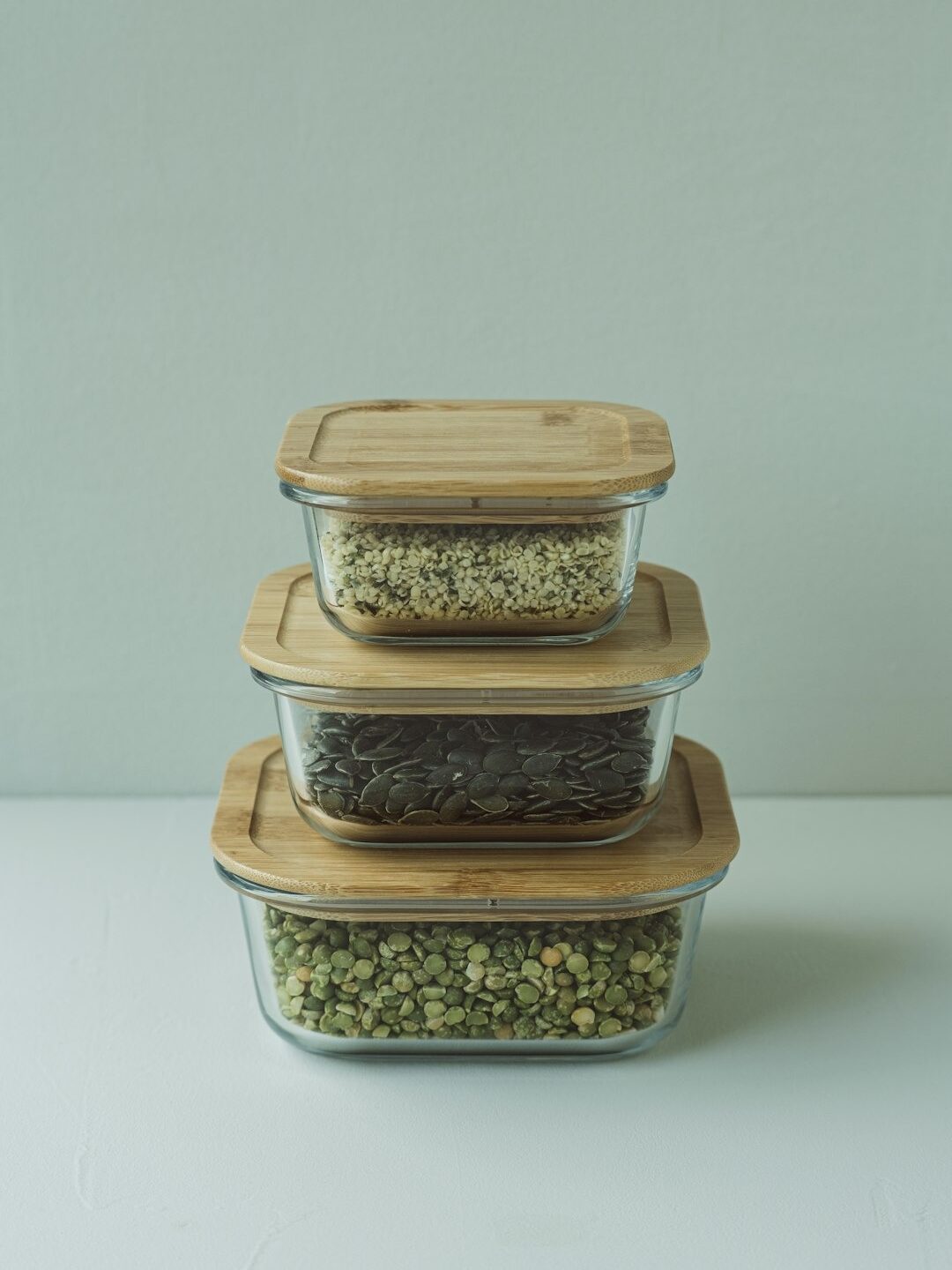
They say the kitchen is the heart of a home. But, what if your home’s heart is damaging Mother Nature? It is no surprise that the kitchen is one of the most wasteful areas in the home. But, it doesn’t have to be. By making a few simple changes, you can transform your kitchen into a zero-waste space. You can reduce your environmental impact and live more sustainably, and guilt-free. In this short guide, we’ll explore practical tips and must-have products that will help you create a zero-waste kitchen. Let’s get into it!
1. Ditch Single-Use Plastics
One of the most significant steps you can take toward a zero-waste kitchen is eliminating single-use plastics. These items are used briefly and then discarded, contributing to massive amounts of waste.

Reusable Bags
Let’s start from the basics, it’s time to let off the plastics, especially the single-use ones. These items are used briefly and then discarded, contributing to massive amounts of waste. To make your kitchen zero-waste, use reusable cloth bags instead of plastic grocery bags. They offer better sturdiness, enhanced durability, and can be used multiple times.
Beeswax Wraps
Plastic wraps might be one of the most used kitchen tools, making a lot of waste. So, replace plastic wrap with beeswax wraps, a more sustainable and eco-friendly alternative for covering and storing food. Beeswax wraps can be reused multiple times, reducing waste and helping to protect the environment.


Glass or Stainless Steel Containers
Additionally, rather than storing your leftovers in plastic containers, consider using glass or stainless steel ones. These options are more durable and do not release any harmful chemicals into your food, ensuring a safer and healthier storage solution.
2. Embrace Composting
Composting is a natural process that turns food scraps and other organic waste into nutrient-rich soil. It’s a fantastic way to reduce kitchen waste and improve your garden. So, take the first step and start a compost bin. If you have outdoor space, start a compost bin to turn your food scraps into compost. Also, use compostable bags to collect food scraps in your kitchen before transferring them to your outdoor bin. If you don’t have outdoor space, don’t worry. Just consider indoor composting options like a countertop composter or vermicomposting (using worms).

Start a Compost Bin
If you have outdoor space, start a compost bin to turn your food scraps into compost.

Compostable Bags
Use compostable bags to collect food scraps in your kitchen before transferring them to your outdoor bin.

Indoor Composting
If you don’t have outdoor space, consider indoor composting options like a countertop composter or vermicomposting (using worms).
3. Choose Sustainable Cleaning Products
Liquid dish soap might seem more convenient but they are hazardous for the Earth. Replace liquid dish soap in plastic bottles with a solid dish soap bar. It’s plastic-free, lasts longer, and works just as well. Also, let go of paper towels and use reusable cleaning cloths. They’re more absorbent, machine washable, and help reduce waste. You can also use eco-friendly cleaning solutions that are biodegradable and come in recyclable or refillable packaging.

Solid Dish Soap
Replace liquid dish soap in plastic bottles with a solid dish soap bar. It’s plastic-free, lasts longer, and works just as well.

Reusable Cleaning Cloths
Ditch paper towels for reusable cleaning cloths. They’re more absorbent, machine washable, and help reduce waste.

Eco-Friendly Cleaning Solutions
Use eco-friendly cleaning solutions that are biodegradable and come in recyclable or refillable packaging.
4. Shop in Bulk
Buying in bulk is an excellent way to reduce packaging waste. Many stores offer bulk bins where you can purchase grains, nuts, and other pantry staples. When shopping in bulk, bring your own containers or cloth bags to fill up on essentials. This reduces the need for disposable packaging. Then, label your bulk items and organize them in glass jars or bins for easy access and a clutter-free pantry. It also gives a very cute vibe!

When shopping in bulk, bring your own containers or cloth bags to fill up on essentials. This reduces the need for disposable packaging.
Label your bulk items and organize them in glass jars or bins for easy access and a clutter-free pantry.
5. Adopt a Minimalist Approach
A zero-waste kitchen isn’t just about reducing waste; it’s also about simplifying your life. Adopting a minimalist approach to your kitchen can help you focus on what truly matters. Start by removing unnecessary gadgets and items you rarely use. A streamlined kitchen is easier to maintain and creates less waste. And, choose high-quality kitchen tools and appliances that will last for years, reducing the need for replacements.

Declutter Your Kitchen: Remove unnecessary gadgets and items you rarely use. A streamlined kitchen is easier to maintain and creates less waste.
Invest in Quality Over Quantity: Choose high-quality kitchen tools and appliances that will last for years, reducing the need for replacements.
Conclusion
Creating a zero-waste kitchen is a journey, not a destination. Start with small changes, like swapping out single-use plastics and embracing composting, and gradually build a more sustainable kitchen. By making these changes, you’ll reduce your environmental impact and create a healthier, more efficient kitchen space.
Explore zero-waste eco-friendly product recommendations at Eco Choice Studio and start your journey towards a more sustainable kitchen!



